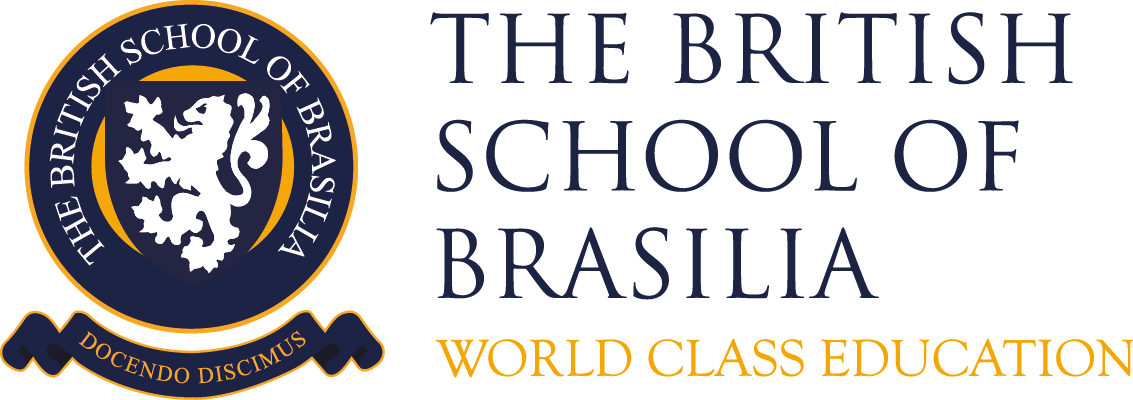Computing/ICT
Computing is a key element of the Knowledge and Understanding strand of our Extended Curriculum.
The Information Communication and Technology (ICT) curriculum at BSB, in line with ongoing developments back in the UK are based on the concept that learners have a “Digital Life”. The Curriculum has to be fit for purpose in a 21st Century classroom and even more, the curriculum has to offer the students the challenge, opportunities and breadth of knowledge that will allow and encourage them to excel in their use of ICT. In practice this will be several interwoven digital lives - school, work, social networks, gaming, day to day activities such as shopping and possible use of Web technologies.
In order to be effective, safe and knowledgeable citizens, learners should be able to choose and use tools appropriately for effective communication of ideas, finding information or solving problems. Making these choices wisely requires levels of understanding and a range of skills, knowledge and competence. It may involve understanding aspects of hardware and software, choosing to use a wiki to prepare shared information pages or deciding on which piece of software to use when demonstrating understanding in History or Geography. Having a high level of “Digital Wisdom” will result in learners who can make decisions about using technology in interesting, creative and productive ways. Developing learners with Digital Wisdom lies at the heart of the ICT learning experiences and incorporates the wisdom that is not ours innately, but which we are able to develop through the appropriate use of technology.
The whole ICT learning experience lies within the context of 3rd Millennium Learning – a down-to-earth approach to using 21st century tools to empower learners, enabling learning that wouldn’t otherwise be possible. Third Millennium schools embody a culture of embedded and effective ICT use across the curriculum, to the extent that it becomes invisible and the learning becomes paramount. They use resources and learning environments creatively, including opportunities to develop higher level thinking skills throughout all areas of the school curriculum, equipping, empowering and enabling learners to adapt to an ever-changing digital landscape in a holistic manner.
In a Digital Life, tools and resources enable us to innovate, research and generate knowledge. They enable the generation of “artefacts” which can be used or created by learners - including digital documents, presentations, programmes and codes, video and audio files, images and photographs. There are some overlaps with digital technologies, where tools and artefacts are likely to be combined for a purpose or to build a system, e.g. creating a website containing information, photos and video about a particular interest for others to use. Creating an artefact can include aspects of ICT which involve computational thinking, knowledge and understanding of computer science and coding, e.g. designing, developing and creating a game by programming, or developing an app for others to use. At BSB we encourage our students to perfect enquiry based approaches to learning as we believe this provides valuable opportunities to incorporate higher level thinking skills.
As a school that is acutely aware of the changing boundaries of ICT we constantly review our provision and adapt our curriculum to ensure your child's 'Digital Life' is constantly supported and reinforced.
Computing can be offered as an IGCSE subject in Year 10 and 11.
The Information Communication and Technology (ICT) curriculum at BSB, in line with ongoing developments back in the UK are based on the concept that learners have a “Digital Life”. The Curriculum has to be fit for purpose in a 21st Century classroom and even more, the curriculum has to offer the students the challenge, opportunities and breadth of knowledge that will allow and encourage them to excel in their use of ICT. In practice this will be several interwoven digital lives - school, work, social networks, gaming, day to day activities such as shopping and possible use of Web technologies.
In order to be effective, safe and knowledgeable citizens, learners should be able to choose and use tools appropriately for effective communication of ideas, finding information or solving problems. Making these choices wisely requires levels of understanding and a range of skills, knowledge and competence. It may involve understanding aspects of hardware and software, choosing to use a wiki to prepare shared information pages or deciding on which piece of software to use when demonstrating understanding in History or Geography. Having a high level of “Digital Wisdom” will result in learners who can make decisions about using technology in interesting, creative and productive ways. Developing learners with Digital Wisdom lies at the heart of the ICT learning experiences and incorporates the wisdom that is not ours innately, but which we are able to develop through the appropriate use of technology.
The whole ICT learning experience lies within the context of 3rd Millennium Learning – a down-to-earth approach to using 21st century tools to empower learners, enabling learning that wouldn’t otherwise be possible. Third Millennium schools embody a culture of embedded and effective ICT use across the curriculum, to the extent that it becomes invisible and the learning becomes paramount. They use resources and learning environments creatively, including opportunities to develop higher level thinking skills throughout all areas of the school curriculum, equipping, empowering and enabling learners to adapt to an ever-changing digital landscape in a holistic manner.
In a Digital Life, tools and resources enable us to innovate, research and generate knowledge. They enable the generation of “artefacts” which can be used or created by learners - including digital documents, presentations, programmes and codes, video and audio files, images and photographs. There are some overlaps with digital technologies, where tools and artefacts are likely to be combined for a purpose or to build a system, e.g. creating a website containing information, photos and video about a particular interest for others to use. Creating an artefact can include aspects of ICT which involve computational thinking, knowledge and understanding of computer science and coding, e.g. designing, developing and creating a game by programming, or developing an app for others to use. At BSB we encourage our students to perfect enquiry based approaches to learning as we believe this provides valuable opportunities to incorporate higher level thinking skills.
As a school that is acutely aware of the changing boundaries of ICT we constantly review our provision and adapt our curriculum to ensure your child's 'Digital Life' is constantly supported and reinforced.
Computing can be offered as an IGCSE subject in Year 10 and 11.



